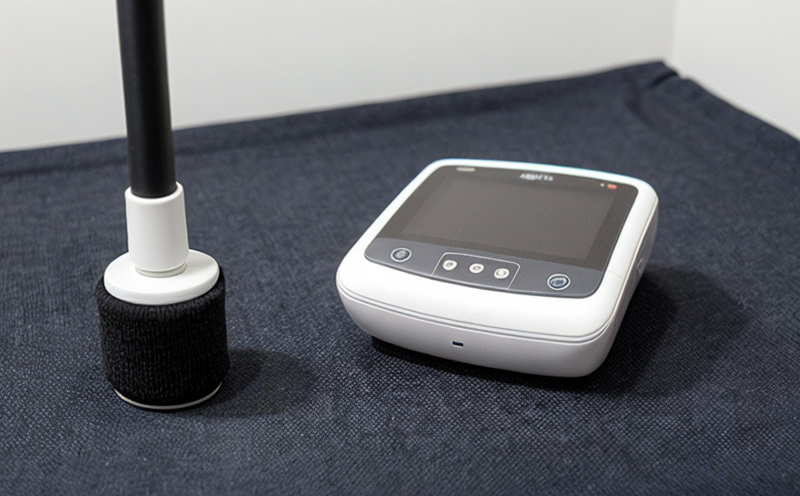NF EN 1149 Electrostatic protective apparel Verification testing
The NF EN 1149 standard is a critical benchmark for ensuring that electrostatic protective (ESD) apparel meets the stringent requirements necessary to protect personnel and equipment from static discharge hazards in various industries. This service focuses on verifying compliance with NF EN 1149, which sets out specific criteria for ESD clothing used in environments where there is a risk of ignition or explosion due to static electricity.
The primary purpose of this testing is to ensure that the fabric and garments conform to the specified resistance values. The test involves determining whether the material has an appropriate level of electrical conductivity, which helps prevent the buildup of static charges within the work environment. Compliance with NF EN 1149 is essential for industries such as electronics manufacturing, chemical processing, pharmaceuticals, and automotive.
Our team follows a rigorous process to verify compliance with this standard. We start by inspecting the garment's fabric composition, ensuring it meets the specified material requirements. Next, we conduct resistance measurements using specialized equipment that adheres strictly to NF EN 1149 guidelines. This includes measuring resistance values between different parts of the garment and against a ground reference.
The test results are meticulously documented in accordance with international standards, providing clear evidence of compliance. We also offer additional services such as training on ESD best practices and recommendations for improving fabric conductivity if necessary.
- Resistance measurement between different parts of the garment
- Resistance measurement against a ground reference
- Mechanical stability testing to ensure durability in harsh environments
- Airtightness checks to verify that the garments provide effective protection
In summary, our NF EN 1149 electrostatic protective apparel verification service ensures that your ESD clothing meets industry standards and provides reliable protection against static-related hazards. This is crucial for maintaining a safe working environment while minimizing potential risks.
Scope and Methodology
The scope of this testing includes verifying the electrical resistance properties of electrostatic protective apparel in accordance with NF EN 1149. The methodology involves several key steps to ensure accurate and consistent results:
- Sample preparation: Garments are prepared according to ISO standards for proper conductivity measurement.
- Resistance measurement: Using high-precision instruments, we measure the resistance between different parts of the garment as well as against a ground reference. The equipment used ensures compliance with NF EN 1149 requirements.
- Data analysis: All collected data is analyzed to determine if it meets the specified criteria outlined in the standard.
- Reporting: Detailed reports are provided, including any areas where improvements can be made based on our findings.
The methodology employed during this process ensures that every aspect of NF EN 1149 is thoroughly addressed. This comprehensive approach guarantees accurate and reliable results, providing peace of mind for both manufacturers and end-users.
International Acceptance and Recognition
The NF EN 1149 standard enjoys widespread acceptance across Europe and beyond due to its rigorous testing procedures. This list highlights some key regions where compliance with this standard is crucial:
- United States: Compliance ensures safe working environments in various industries, including electronics manufacturing.
- China: Many companies operating in China must ensure their products meet international standards like NF EN 1149 to gain market access.
- Australia/New Zealand: Both countries have adopted NF EN 1149 as a recommended practice for ensuring safety in high-risk environments.
The global acceptance of this standard underscores its importance in promoting safety and reducing risks associated with static electricity. By adhering to these guidelines, organizations can demonstrate their commitment to occupational health and safety standards worldwide.
Competitive Advantage and Market Impact
Adhering to NF EN 1149 not only enhances the safety of workers but also offers significant competitive advantages for businesses. Here are several ways in which compliance with this standard can positively impact your organization:
- Enhanced reputation: Demonstrating adherence to stringent international standards boosts customer confidence and trust.
- Increased market share: By meeting these requirements, companies can expand into new markets that require NF EN 1149-compliant products.
- Improved operational efficiency: Ensuring safety through proper ESD apparel reduces downtime caused by accidents or incidents involving static electricity.
- Cost savings: Preventative measures against potential hazards translate to lower insurance premiums and reduced liability risks.
In today's competitive market, maintaining high standards of occupational health and safety is increasingly seen as an essential factor in attracting customers. By choosing our NF EN 1149 electrostatic protective apparel verification service, you are investing in the future success and sustainability of your business.





